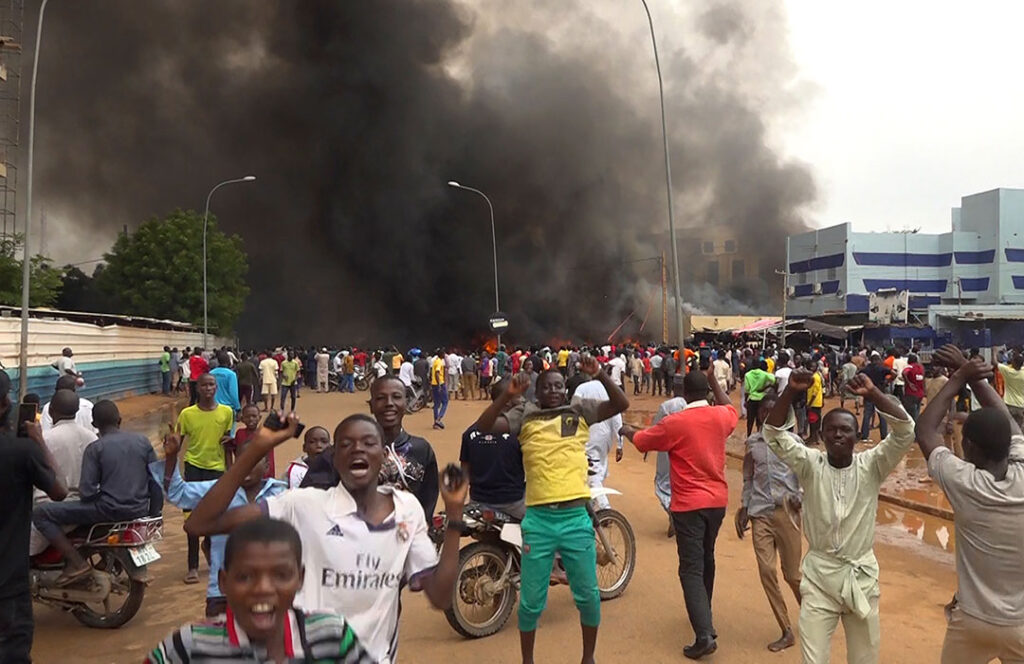A marked increase in attacks by armed groups and terrorists on military bases and civilians across the central Sahel have occurred since the beginning of 2025 when Burkina Faso, Mali and Niger left the Economic Community of West African States (ECOWAS), which offered counterterrorism support.
The three junta-led countries formed a defense force through their Alliance of Sahel States, but terror attacks by the al-Qaida-affiliated Jama’at Nusrat al-Islam wal-Muslimin (JNIM), the Islamic State in the Sahel Province and their numerous splinter organizations have continued. The groups now also target border regions between Benin, Niger, Nigeria and Togo.
“West Africa is becoming a silent powder keg that could explode into a cataclysmic situation in the next few years,” analyst Julian McBride wrote for Modern Diplomacy, an online magazine.
According to the United Nations Security Council, Togo recorded 10 terror attacks, including four by JNIM, resulting in 52 deaths in 2024. The country recorded 12 deaths from terror attacks in 2023. In 2025, JNIM has killed at least 54 civilians and eight Soldiers in 15 attacks between January and late July, Robert Dussey, Togo’s foreign minister, told Reuters.
In early January, JNIM attacks in northern Benin, near its northern borders with Burkina Faso and Niger, killed 28 Beninese Soldiers. In April, JNIM killed 54 Beninese Soldiers in the same region. Wilfried Leandre Houngbedji, a Beninese government spokesperson, said the country was determined to fight off the terrorists.
“We won’t give in … I can assure you that sooner or later, we will win,” Houngbedji said in a BBC report.
In late January, the Islamic State West Africa Province (ISWAP) stormed a military base in the remote northern Nigeria town of Malam Fatori, near the Niger border, and killed 20 Nigerian Soldiers. Six Nigerian Soldiers were killed a few weeks earlier in northeastern Borno State, which also borders Niger.
In early July, ISWAP killed 11 people during an assault on an internal displacement camp in Malam Fatori. Relations between Nigeria and Niger soured after the latter’s July 2023 coup. This disrupted joint military patrols and created more opportunities for terrorists.
Counterterrorism efforts by Burkina Faso, Mali and Niger are complicated by the expulsion of international troops and the presence of Russia’s Africa Corps mercenaries, who were preceded by the Wagner Group. The Russian groups use similar tactics, including committing atrocities against civilians alongside state security forces. Burkina Faso now is the country most affected by terrorism globally, and 40% of its territory is controlled or contested by JNIM. The Sahel is now the world’s epicenter of terrorism.
In Mali, the mercenaries’ brutal tactics and haphazard approach to counterterrorism made it impossible to earn the trust of the Malian people, and the nation’s Army deeply resents them, according to a report by The Sentry. The Malian Army claimed that Russian fighters disrespected their command and control, and Malians blamed the Russians for security lapses and operational mistakes that resulted in personnel and equipment losses. In August, JNIM gained control of a military base in the town of Farabougou, near the Wagadou Forest and the Mauritanian border.
“The lack of governance enacted by the juntas, along with their failures in counterinsurgency, is now having negative consequences on the continent,” McBride wrote. “Unless the coup-belt officers turn course and allow regional coordination to combat al-Qaeda and ISIS, the jihadists will continue to gain ground and perhaps create a major base of operations not seen since ISIS’s ‘caliphate’ that stretched across large swaths of Iraq and Syria.”
Despite continued failures in the Sahel, Russia continues to attempt to expand its footprint into West Africa. In July, Russia’s legislative committee approved a bill to ratify a framework agreement on military cooperation with Togo. The deal includes joint military exercises, training for Togolese Soldiers, security intelligence sharing and free emergency medical assistance. Togo’s Parliament still must ratify the deal, according to a report on togofirst.com.

